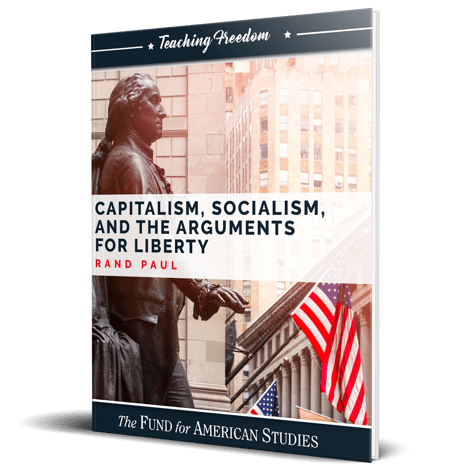A Brief Book Summary from Books At a Glance
by Steve West
Summary
During the government’s response to COVID-19, real questions were raised about what it means to be free. In order for citizens to have freedom, governments can give advice and present factual evidence, but individuals need to be able to draw their own conclusions and make their own decisions about how to live their lives. There are numerous arguments for freedom, but they can often be categorized under the rubric of the liberty argument and the efficiency argument. At the heart of the liberty argument is the view that government should be small and limited: it only needs to be big enough to prevent anarchy. Government should be no bigger than is required for its proper function, and no one should have to give up more than the smallest amount of freedom necessary. Liberty grows smaller as government gets bigger. When government takes taxes from our paychecks, they are removing a percentage of our money and the corresponding freedom we have to determine how we want to spend the money we earn. Regrettably, government is extremely inefficient and wasteful with taxpayers’ money both in domestic spending and international projects. Given government waste, it seems obvious that philanthropic organizations can do a much better job of helping people than the government can. As a result, even those on the left wing should support a more limited government. Simply put, the liberty argument is: “the bigger the government, the less liberty you’ll have.”
The efficiency argument—advocated by Milton Friedman and many others—observes that, “nobody spends someone else’s money as wisely as their own.” If you work hard to earn $100 and you need to invest it, you’ll think long and hard about your decision, but if you’re in government and get millions of taxpayers’ dollars, much of that personal care evaporates. With changeover in government officials, projects get started and abandoned, or funds are spent in redundant ways. State government can be more efficient than the federal government, but whenever government grows, its efficiency diminishes. The free marketplace is better and more efficient than government. . . .
[To continue reading this summary, please see below....]The remainder of this article is premium content. Become a member to continue reading.
Already have an account? Sign In
Buy the books

CAPITALISM, SOCIALISM, AND THE ARGUMENTS FOR LIBERTY, by Rand Paul